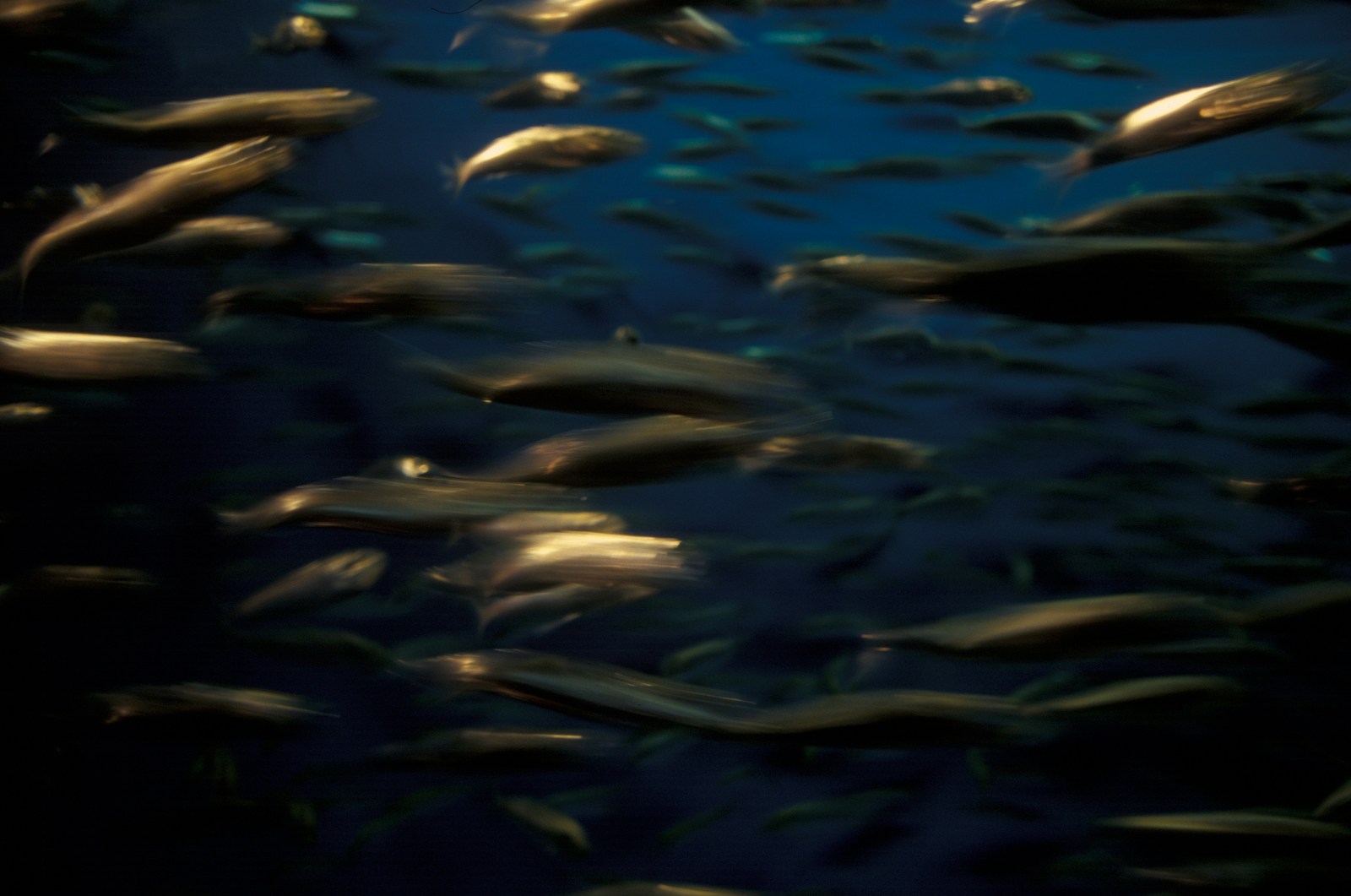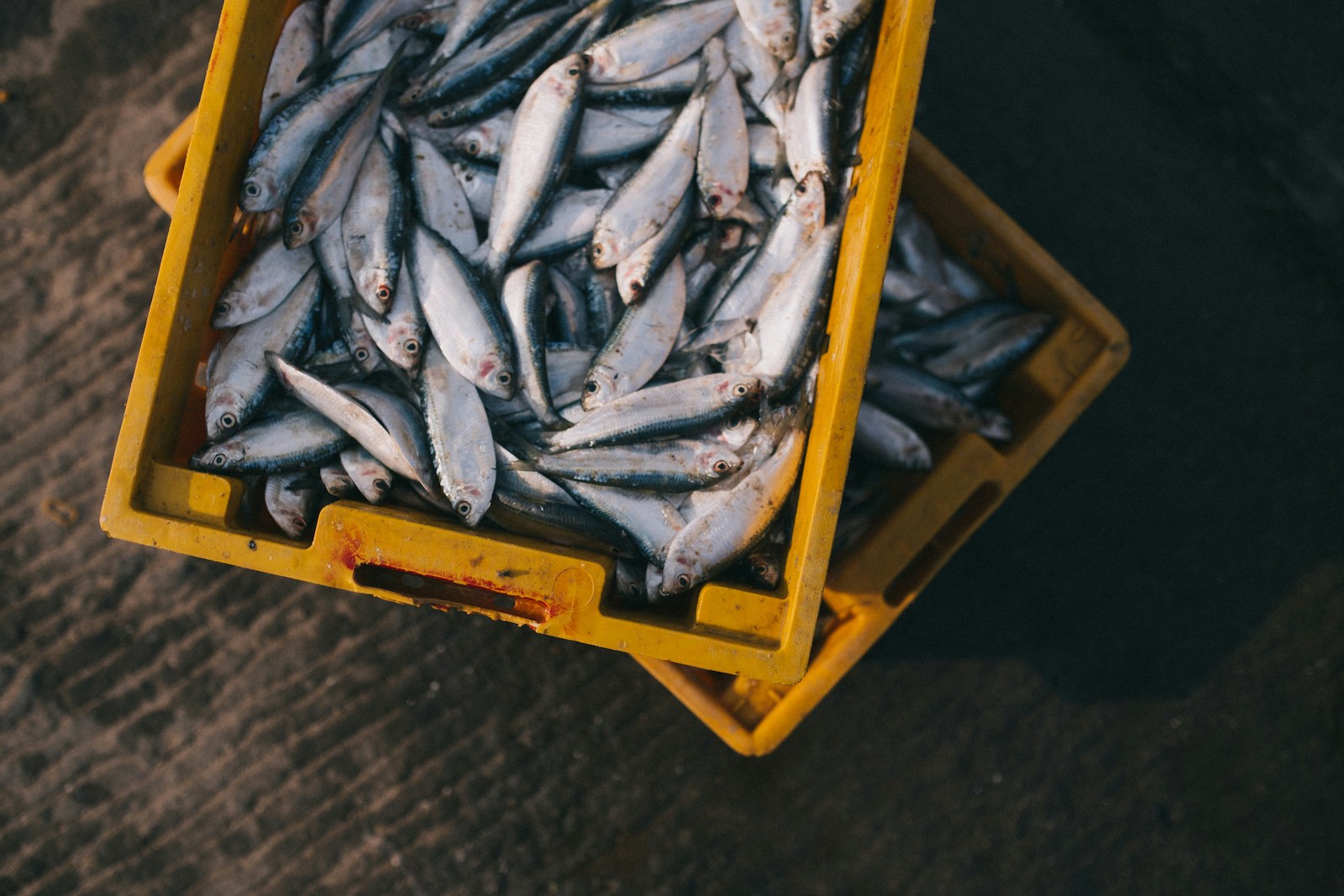Climate change is reshaping modern food systems. Meanwhile, the meat industry alone contributes around 12 to 18% of global greenhouse gas emissions, significantly impacting the climate. Forage fish is a sustainable (and nutritious!) option that doesn’t receive a lot of attention. While many of us are familiar with popular fish like salmon and tuna, forage fish such as anchovies, sardines, and menhaden play a crucial role in marine ecosystems and offer numerous benefits for our diets and the planet. Let’s delve into why these unsung heroes of the ocean deserve a spot on our plates.
What are forage fish?
Forage fish include both well-known species like sardines and anchovies, as well as lesser-known options like capelin, herrings, mackerels, menhaden, and even krill. These small, schooling fish primarily feed on plankton and tiny organisms, acting as a crucial food source for larger marine predators, such as tuna and swordfish. Forage fish play a vital role in maintaining the balance of marine ecosystems, serving as a pathway for energy transfer from the lower to higher levels of the food web. Without them the ocean's food web would collapse.
Forage fish have also been equally important in the diets and culinary traditions of coastal and inland communities around the world. In Northern Europe, herring has been salted, pickled, and smoked for centuries, while in the Mediterranean, sardines and anchovies have been preserved through drying and fermenting, and were used in dishes like garum (fish sauce) in ancient Rome. In Japan and Korea, sardines and anchovies are essential in broths and soups, while Latin and South America use sardines as an affordable protein for dishes such as Mexican ceviche and Brazilian feijoada. Across cultures, these small fish have been prized for their nutritional value, ease of preservation, and their ability to feed many.
The many benefits of forage fish
Many forage fish are easy to find at your local grocery store, yet many people steer clear because they come in a can. The myth that canned fish is bad for your health is largely rooted in misconceptions about the canning process, as well as a general preference for fresh or frozen seafood. However, when properly handled, canned fish can be just as nutritious, safe, and environmentally-friendly as fresh fish — and in many cases, it offers unique advantages.
Canned forage fish is very affordable, has a long shelf life, and contains a rich nutrient profile. When sourced responsibly and consumed as part of a balanced diet, canned forage fish can be a healthy, safe, and sustainable choice for anyone looking to include more seafood in their diet. Furthermore, switching to forage fish can enhance dietary intake of essential nutrients such as omega-3 fatty acids, vitamin B-12, and calcium, which are often lacking in typical diets. They also provide a low-mercury alternative to fish like tuna, an important consideration for the health of women, especially pregnant or nursing mothers, and children.

Reducing Carbon Footprints
Replacing meat with forage fish offers significant advantages to both human health and the environment. Research indicates that reducing meat consumption — especially meat from ruminants like beef and lamb, which produce methane, a potent greenhouse gas — can drastically lower emissions, reduce agricultural land use, and improve human health. Nutrient-rich forage fish have a low carbon footprint and are increasingly seen as a substitute for meat. By 2050, findings suggest that increasing forage fish consumption could supplant around one-tenth of our current global meat intake with the potential to reduce greenhouse gas emissions by 15%.
Sustainable economies
In addition to the health and environmental benefits, supporting forage fish harvesting also brings economic prosperity to communities who need it. In the Pacific Northwest, sardine and anchovy fisheries have been integral to local economies for decades, providing jobs in fishing, processing, and distribution. These small-scale, sustainable fisheries contribute to the economic stability of coastal towns like Monterey, California, where sardine harvesting has long supported both the local economy and traditional fishing practices.
By choosing to eat more forage fish, consumers not only help sustain these industries but also promote eco-friendly fishing techniques that prioritize the long-term health of marine ecosystems.Techniques like purse seining or low-impact traps (both of which are typically used to catch forage fish) are fishing practices that minimize environmental damage.Both methods are better for the environment because they are more selective and cause less disruption to marine habitats. Overall, they promote sustainable fishing practices that help protect fish populations and ensure the long-term health of our oceans. This demand for sustainable products helps bolster communities and incentivizes practices that preserve both the environment and cultural heritage, ensuring that these fisheries remain economically viable and ecologically responsible for generations to come.
Supporting Marine Ecosystems
With climate change altering marine environments, healthy populations of forage fish become increasingly vital. A recent study analyzed the reproductive success of seabirds like Atlantic puffins, razorbills, and common murres, highlighting that diverse forage fish stocks are crucial when high-energy prey become scarce due to warming waters. As forage fish populations decline, these seabirds face reproductive challenges, as they are forced to rely on less nutritious or less abundant food sources. Shifting human consumption away from popular fish like tuna and salmon toward forage fish can alleviate pressure on marine ecosystems, helping to maintain the balance needed to support both wildlife and sustainable fisheries.
This ripple effect underscores the importance of preserving forage fish not only for marine food webs, but also for the broader health of ocean ecosystems and species dependent on them. Choosing to eat sustainably-caught forage fish more often, rather than opting for more resource-intensive or overfished species, can help sustain these critical populations, reduce our environmental impact, and support a more resilient and balanced ocean ecosystem.

As we look toward a more sustainable food future, forage fish emerge as a compelling option. They offer not only nutritional benefits but also a low environmental impact, supporting healthier diets and ecosystems. So, the next time you’re at the grocery store planning your meals, consider reaching for sardines, anchovies, or other forage fish. By doing so, you’re not only making a positive choice for your health but also supporting the health of our oceans and the planet.
